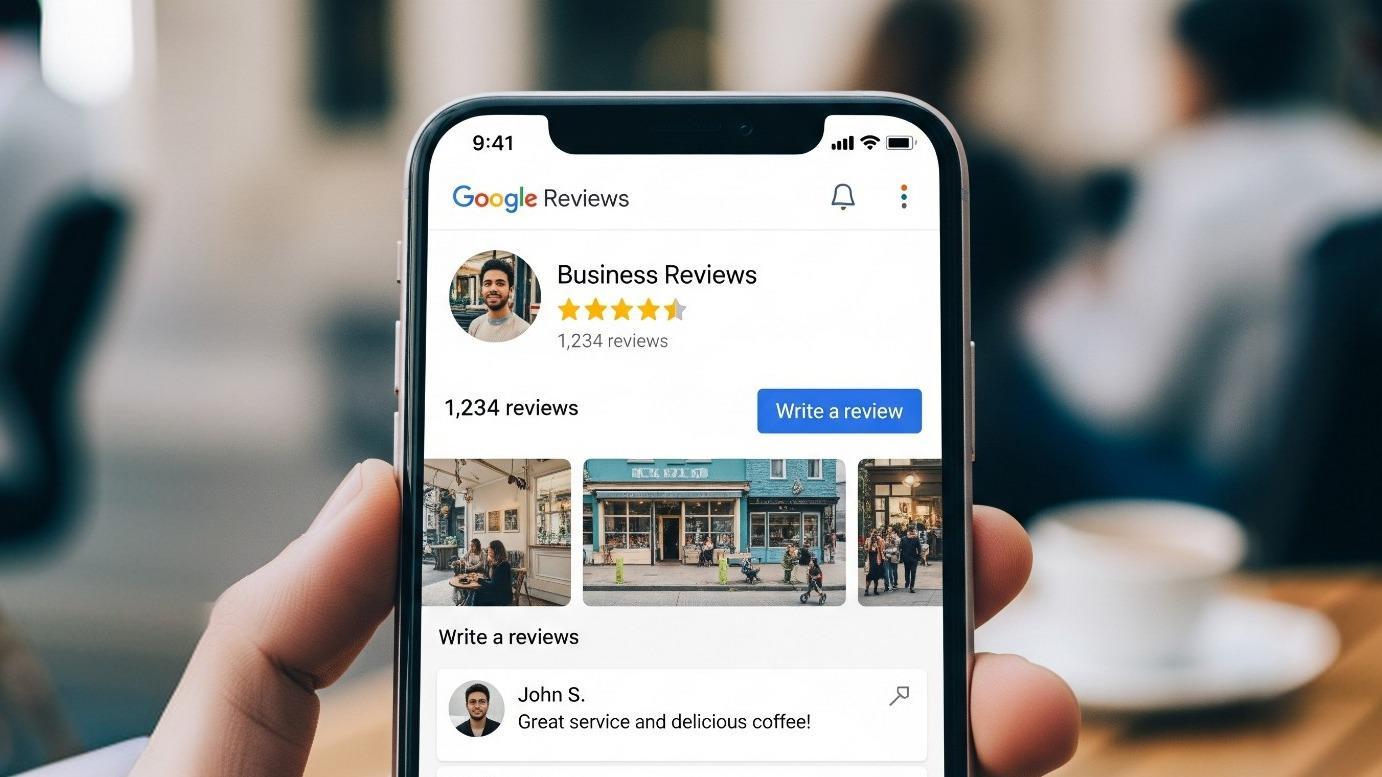
In today's fast-paced digital economy, online customer reviews are a game-changer. They shape how customers perceive businesses, influence purchasing decisions, and build or break brand reputation. A glowing review can convince a hesitant buyer, while a negative one might send them to a competitor.
For businesses, reviews are a powerful tool to establish trust, improve search rankings, and drive conversions. For customers, reviews provide honest insights into products, services, and experiences.
Today, we will guide you to understanding the best online review sites, where to post them, and how businesses can leverage them effectively. Whether you're a customer wanting to share feedback or a business aiming to grow, we will help you navigate the world of review platforms in 2025.
Top Online Review Platforms You Should Know in 2025
These platforms are essential for connecting customers with businesses. They offer a space to share experiences, read feedback, and make decisions. Here is a detailed look at the most trusted online review sites in 2025, including their strengths, weaknesses, and best use cases:
- Google Reviews. Tied to Google My Business, this platform is a must for local businesses like restaurants, salons, and retail stores. Reviews appear on Google Search and Maps, making them highly visible. The site offers massive reach, boosts local SEO, and is easy to use. However, it has limited moderation, which can lead to fake reviews, and businesses have less control over responses.
- Yelp. A favorite for local businesses, especially in hospitality, dining, and retail. Yelp encourages detailed reviews, star ratings, and photos, making it a go-to for customers seeking authentic feedback. It has a strong community, is trusted by locals, and is great for small businesses. But it has strict filters that can hide legitimate feedback.
- Trustpilot. This online review platform is perfect for e-commerce, online services, and tech companies. It emphasizes verified reviews and transparency, appealing to global audiences. It's credible and user-friendly and supports multiple languages. But advanced features require paid plans, and some industries may see less traffic.
- Facebook Reviews. This is ideal for small businesses with an active social media presence. Customers can leave star ratings and comments directly on business pages. It has a wide audience, easy integration with social media, and is free to use. However, it's less structured than dedicated platforms, and reviews can get buried in busy feeds.
- Better Business Bureau (BBB). Best for professional services, contractors, and established companies. BBB focuses on accreditation, dispute resolution, and trust-building. It has high credibility, is trusted by older demographics, and offers mediation services. But it's less relevant for small or new businesses, and the accreditation process can be rigorous.
- Niche Platforms. Platforms like TripAdvisor (travel and hospitality), Zillow (real estate), or Angie's List (home services) cater to specific industries. These are ideal for businesses targeting niche markets with highly targeted audiences and detailed, relevant feedback. However, they're limited to specific sectors, so they're not suitable for all businesses.
Choosing the best online review sites depends on your business type or the feedback you're seeking. For example, a coffee shop might prioritize Google and Yelp, while an online retailer could focus on Trustpilot.
Where to Post Reviews to Help Other Customers and Boost Businesses
Knowing where to leave reviews is crucial for ensuring your feedback reaches the right audience. A well-placed review can guide other customers, support businesses you love, and even influence improvements. Here are the top places where you can leave reviews for a business:
- Google. Ideal for local businesses like cafes, gyms, or stores. Reviews here are highly visible on Google Search and Maps, reaching a broad audience. A quick star rating and a short comment can make a big impact.
- Yelp. Perfect for restaurants, bars, and retail businesses. Yelp users value detailed reviews with specifics about service, quality, or atmosphere. Adding photos can make your review stand out.
- Facebook. Great for small businesses with active social media pages. Leaving a review on their Facebook page is simple and helps businesses connect with their community.
- Trustpilot. Best for online businesses, such as e-commerce stores or subscription services. Trustpilot's verification process ensures your review carries weight.
- Industry-Specific Platforms. For example, leave feedback on TripAdvisor for hotels or restaurants, Zillow for real estate agents, or G2 for software companies. These platforms attract users looking for targeted insights.
- BBB. Suitable for professional services like contractors or financial advisors. Reviews here signal trustworthiness and are often read by customers seeking reliable businesses.
When deciding where to post reviews for businesses, consider where the business is most active and where your feedback will be seen. Your review helps others make informed choices and encourages businesses to maintain high standards. Even a single review on these online platforms can influence dozens of potential customers.
How to Leave a Helpful Review: Tips for Impactful Feedback

Writing a review that resonates requires thought and clarity. A well-crafted review is credible, helpful, and fair. Here are practical tips to make your feedback impactful:
- Be Specific. Include details like the product, service, or staff member involved.
- Balance Positives and Negatives. Highlight what went well and what could be better. This shows fairness and helps businesses improve. Avoid one-sided rants or overly glowing praise.
- Keep It Short. Aim for 2-4 sentences. Long reviews may lose readers' attention, while short ones are easy to digest.
- Use Facts. When leaving an online review, mention dates, locations, or specific experiences to add credibility to the website.
- Avoid Emotional Extremes. Stay calm and professional, even if you're upset. Harsh language or exaggeration reduces your review's impact.
- Add Value. Think about what future customers need to know. For example, mention wait times, pricing, or product quality.
Why Businesses Should Actively Monitor and Encourage Online Reviews
Review platforms for businesses are more than feedback hubs - they're growth engines. Reviews build trust, improve visibility, and drive sales. Here's why businesses should prioritize review sites and how they can benefit:
- Build Credibility. Positive reviews signal reliability. Research shows 70% of customers trust businesses with strong reviews, making platforms like Google and Trustpilot critical for reputation.
- Boost SEO. Reviews on the best online sites like Google improve local search rankings. More reviews with relevant keywords (e.g., "best pizza in Chicago") increase visibility.
- Increase Conversions. Reviews act as social proof, reducing buyer hesitation. For example, a product page with 4.8/5 stars from 100 reviews is more likely to convert than one without feedback.
- Gain Insights. Customer reviews on platforms reveal what customers love or want improved, helping businesses refine their offerings.
To generate more reviews, businesses can use these strategies:
- Ask Politely. After a purchase or service, ask satisfied customers to share feedback on review platforms.
- Simplify the Process. Share links on receipts, business cards, or social media.
- Engage Actively. Respond to reviews, both positive and negative, to show you value customer input.
- Offer Ethical Incentives. Provide small discounts or loyalty points for leaving honest reviews.
Review platforms help businesses stay competitive, improve operations, and build lasting trust in 2025.
How to Handle Negative Reviews: Protecting Brand Reputation
You know where to post reviews and how to ask for them, but what should you do with negative reviews? Handled well, they can showcase your commitment to customers. Here's how to manage negative feedback:
- Respond Quickly. Reply within 24-48 hours to show you take feedback seriously. A prompt response can calm an upset customer.
- Stay Professional. Use a polite, neutral tone, even if the review feels unfair. Avoid arguments or defensive language, as this can escalate tensions.
- Acknowledge and Apologize. Start by thanking the reviewer and apologizing for their experience. For example, "We appreciate your feedback and are sorry to hear about your disappointment."
- Offer Solutions. Suggest a resolution, like a refund, replacement, or follow-up call.
- Learn and Improve. Use negative feedback to find operational issues, such as slow service or product flaws, and make changes.
By responding thoughtfully, you can turn negative reviews into opportunities to demonstrate transparency and care. This strengthens trust on review platforms.
Using Reviews Across Marketing Channels (Web, Email, Social Media)
Positive reviews are a marketing goldmine. They can be repurposed to build trust and attract customers across multiple channels. Here's how to use reviews effectively:
- Website Testimonials. When posting customer reviews on social media, feature 4-5 star reviews on your homepage, product pages, or a dedicated testimonials section. For example, display a Trustpilot review like "Fast shipping and great quality!" on your e-commerce site. Always credit the source and get permission if required.
- Email Campaigns. Include review snippets in newsletters or post-purchase emails to highlight customer satisfaction. For instance, "Our customers say: 'Best coffee I've ever had!' – Google Review, October 2025."
- Social Media Posts. Share positive reviews as posts or stories on platforms like Instagram, Facebook, or Twitter.
- Ads and Social Proof. Use review quotes in Google Ads, social media ads, or print materials. A line like "Rated 4.9/5 on BBB" adds credibility and increases click-through rates.
- In-Store Displays. For offline businesses, showcase reviews on digital screens or posters. For example, a restaurant could display a Google Review: "Amazing tacos, will be back!" near the entrance.
When repurposing reviews, always credit the platform and avoid editing the text to maintain authenticity. Leveraging reviews across these channels maximizes their impact on the best customer review sites.
learn with mettevo
view blog


Are You Ready To Grow Your Website?
Understanding the ins and outs of website growth, we help ensure that your site grows over time with ever-increasing reach and accessibility. Not only do we employ the latest digital marketing techniques for driving traffic directly to your website, but our strategies also focus on gaining loyalty from those visitors so they come back again and again.
Leave your contacts to get a comprehensive and aggressive digital marketing plan taking your business to new heights.